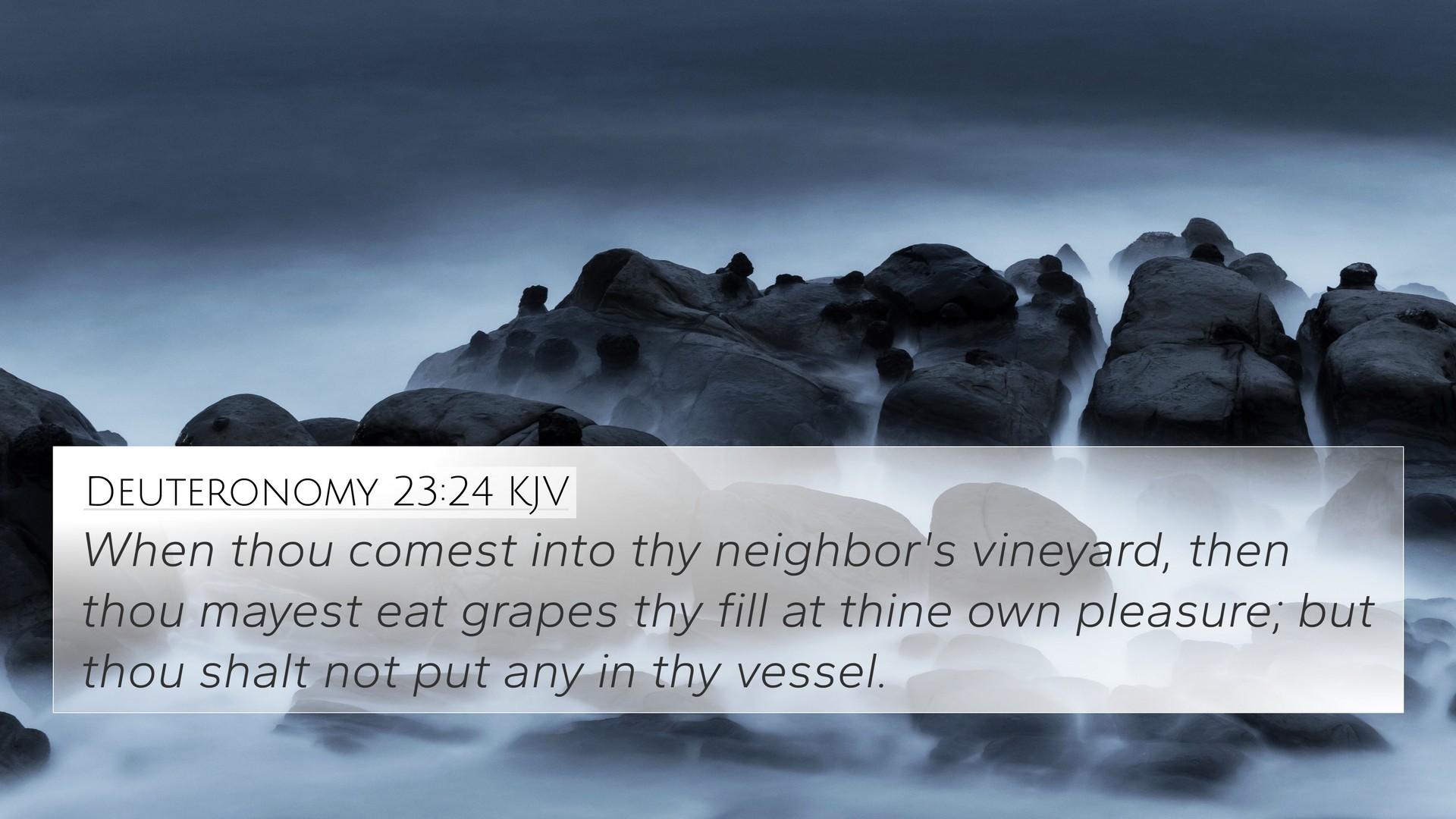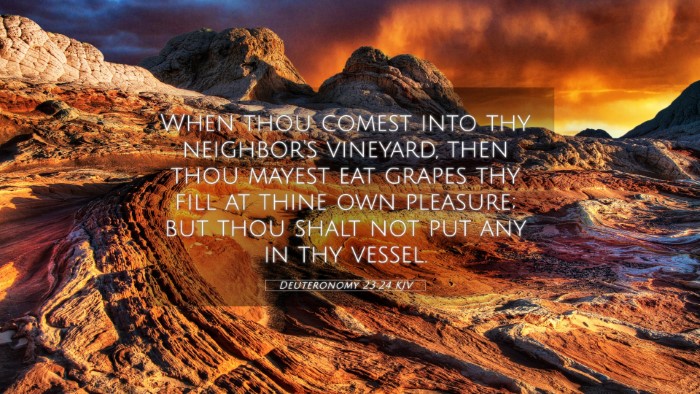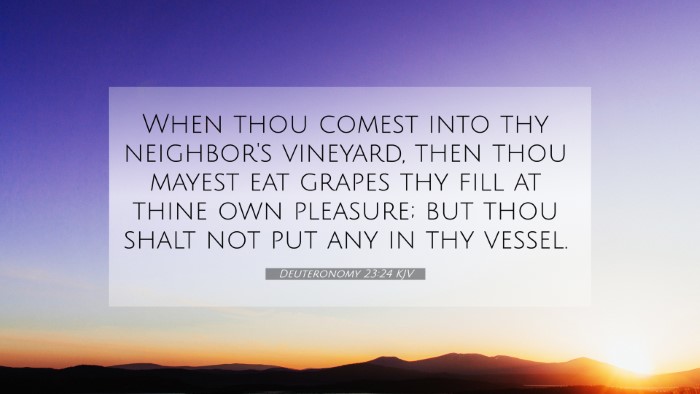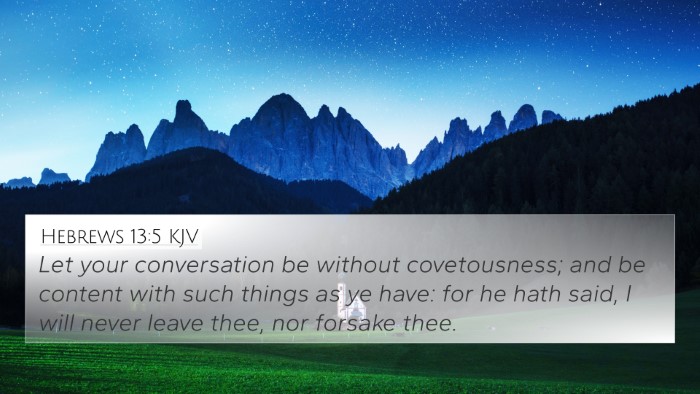Understanding Deuteronomy 23:24
Deuteronomy 23:24 states, "When you enter your neighbor's vineyard, you may eat your fill of grapes, as many as you wish, but you must not put any in your basket." This verse provides insightful teachings on personal conduct and the principle of mutual respect among neighbors.
Meaning and Interpretation
The passage outlines specific regulations regarding the consumption of produce in a neighbor's vineyard, reflecting God’s justice and mercy towards property rights and the importance of maintaining community harmony. Let's explore varied interpretations:
- Matthew Henry (Commentary on the Whole Bible):
Henry emphasizes the idea of courtesy and the importance of not taking more than needed. This reflects the principles of generosity and self-control within community interactions.
- Albert Barnes (Barnes' Notes on the Bible):
Barnes points out the latter part of the verse, focusing on the importance of personal property rights. He highlights that while one can freely eat from their neighbor's vineyard, one must not exploit the situation by taking any grapes home.
- Adam Clarke (Clarke's Commentary on the Bible):
Clarke discusses the cultural context of the commandment, noting that a person’s family is depicted as living within a friendly agrarian community where such allowances foster relationships and mutual respect.
Thematic Connections
The themes of kindness, respect, and communal responsibility permeate this verse, creating connections with various other scriptures. Here are some cross-references that shed light on the themes reflected in Deuteronomy 23:24:
- Leviticus 19:9-10: This scripture commands the Israelites not to reap their fields to the edges and to leave gleanings for the poor, highlighting the shared community spirit.
- Matthew 12:1: Jesus speaks about his disciples plucking grain on the Sabbath, drawing parallels to permissible actions regarding food in a neighbor's field.
- Luke 6:31: "Do to others as you would have them do to you," solidifying the principle of reciprocity in relationships.
- Galatians 6:2: "Carry each other's burdens," which complements the community sense found in Deuteronomy.
- 1 Corinthians 9:7: Discusses the rights of those who preach the gospel, indirectly impacting relational responsibilities.
- Matthew 5:42: Encourages generosity and kindness toward one's neighbor, affirming the fundamental principle seen in Deuteronomy 23:24.
- James 2:8: "If you really keep the royal law found in Scripture, 'Love your neighbor as yourself,' you are doing right," summarizing the essential ethical principle of neighborly love.
- Proverbs 22:1: "A good name is more desirable than great riches; to be esteemed is better than silver or gold," emphasizing reputation within community ties.
- Philippians 2:4: "Not looking to your own interests but each of you to the interests of the others," reinforces the concept of kindness and consideration in dealing with one another.
Conclusion
Deuteronomy 23:24 serves as a powerful reminder of the values of respect, community, and the potential for positive interpersonal relationships. Through the lens of cross-referencing, we witness a richer understanding of biblical principles that promote caring for one another. Studying connections between this verse and others supports a deeper appreciation of scriptural teachings on social ethics and conduct.
Tools for Bible Cross-Referencing
For those interested in exploring more about the connections between Bible verses, consider using:
- Bible Concordance: A tool that provides references and contexts for words and themes across Scripture.
- Cross-reference Bible Study Guides: Designed to help users draw links between Biblical texts efficiently.
- Bible Chain References: A system for tracing related verses from one passage to another.
- Comprehensive Bible Cross-reference Materials: Essential for deep study about thematic connections and scriptural dialogue.
Through wisdom gathered in scriptures like Deuteronomy 23:24, we can further enhance our knowledge, develop a robust understanding of Biblical texts, and engage in fruitful Bible study sessions.





